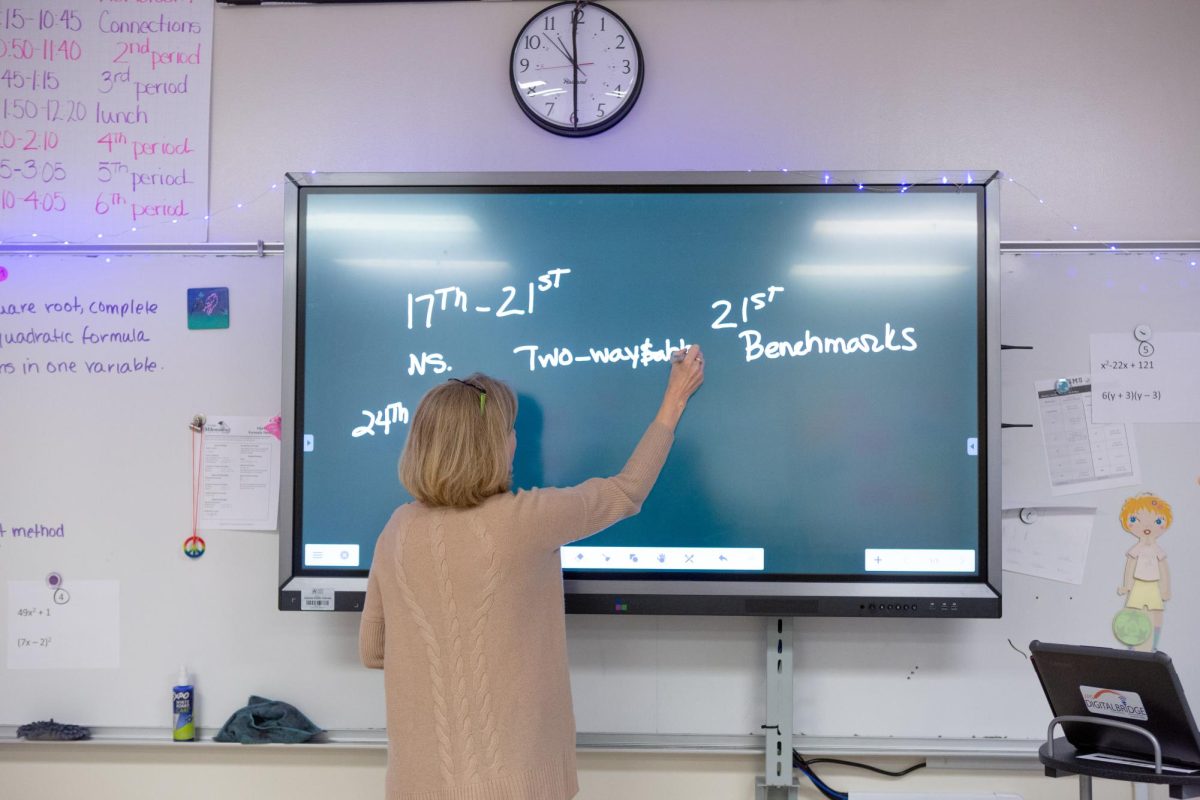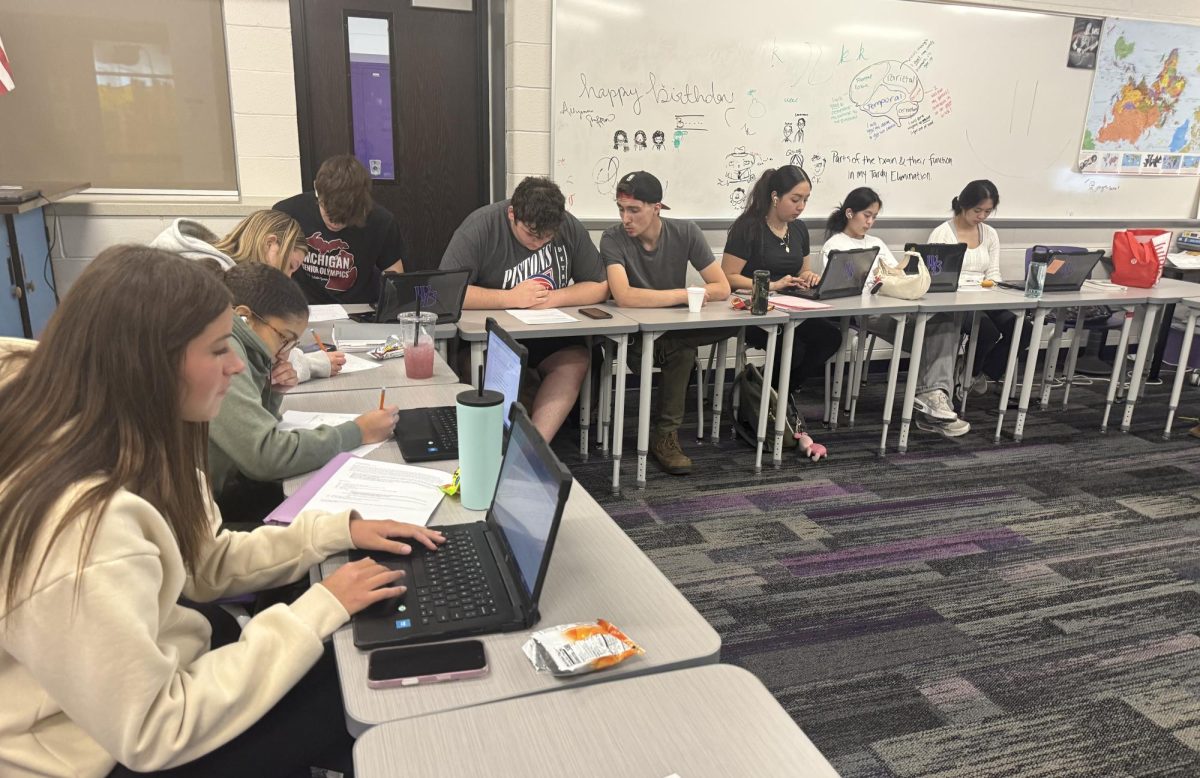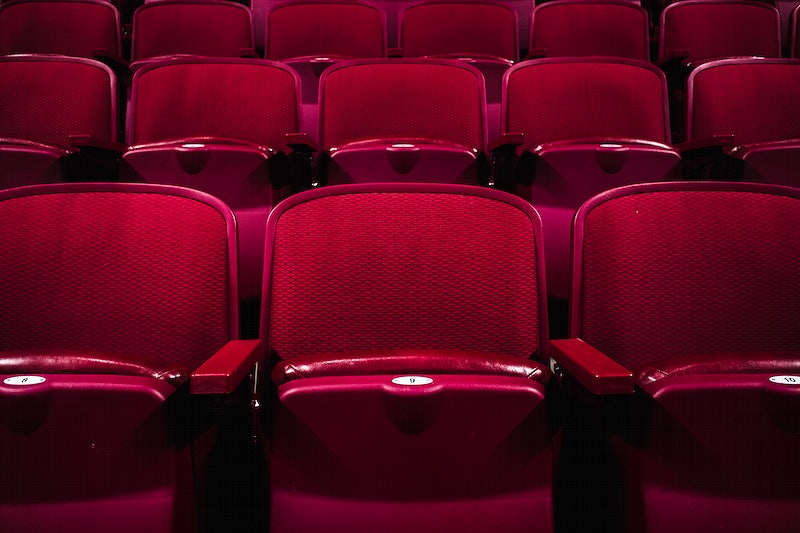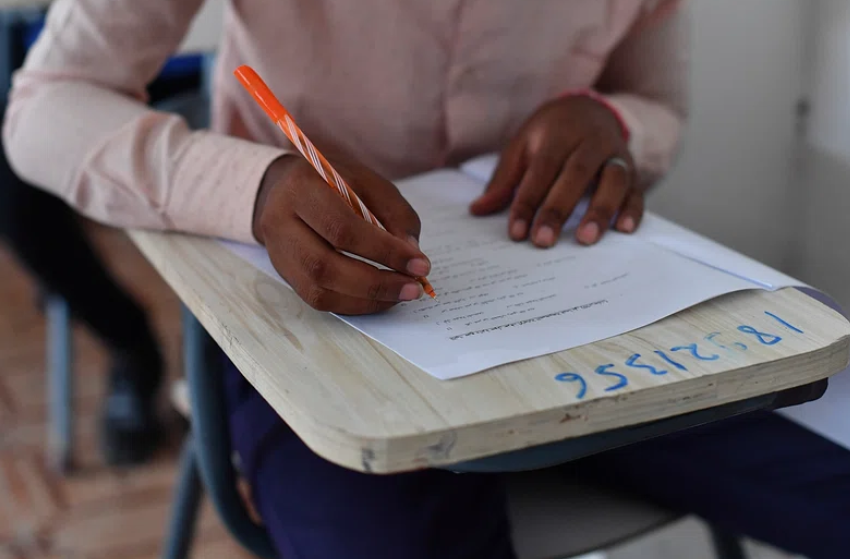It’s not unusual for students to become overwhelmed and in some cases annoyed by teachers’ expectations. But often their opinions reflect misunderstandings between what teachers expect from them compared to what they believe is expected of them.
Academic behavior has negatively shifted over the past few years and some students may believe the school system is to blame.
The rise in technology used in everyday life can suggest that cell phones are a huge reason for the decline in student participation, grades, and social skills. Numerous studies and adult opinion both show a correlation between the two.
The Negative Effects of Smartphones on Students explains how technology is making the lives of young adults completely digital. The non-educational information seeping into the minds of young adolescents, on a daily basis, causes a major decrease in many educational aspects of their life.
Why aren’t teachers taking more initiative to decrease phone use in their classes? The apathy students have towards school is why. The blatant disregard for their teacher’s rules and expectations makes it nearly impossible to decrease phone use.
Students will inevitably disagree with enforcing stricter phone rules. Taking away the device that they root their lives from forces them to live in the real world; which they haven’t done since the lockdown in 2020 due to Covid-19.
Student survey responses used to help support the last article, What makes a good student, reveal student beliefs that the education system is making them feel less motivated to do their work.
According to that survey, students firmly feel as though too much work is put on them. Teachers, on the other hand, have been decreasing the amount of homework and classwork given over the years. Students seem to be misconstruing responsibility with ‘copious amounts’ of schoolwork.
Through an anonymous survey, teachers explain how students frequently push off in-class assignments to complete as homework assignments instead all because they don’t feel like doing it. Those students then complain about not getting it done in time or not understanding the subject.
Many teachers report that they rarely give out homework, adding that they expect assignments to be completed in class, but if something does not get completed then it’s the student’s responsibility to get it completed on their own time.
This is where many students are placing the blame on the staff. Because they lack the ability to take responsibility for their actions, they twist the expectations of their teachers to make it seem as though they are put under too much pressure.
Mr. Johnson-LeMieux states, “Most of the behaviors that students exhibit which I would consider “bad” usually involve apathy and self-harm more than anything that would disrupt other students. This change is significantly different than when I began teaching where students would distract themselves and others by acting out, making jokes, throwing things, bringing in balls or other objects that could disrupt the learning environment.”
Johnson-LeMieux’s observations on disruptive behavior in the classroom can be eye-opening. Even though there seem to be no physically rude or disruptive students like people talking with friends while the teacher is giving a lesson, students are self-harming their own education and are thought to be disrespectful with device use.
For an administrator, walking into a silent classroom where it seems as though everyone is working is a great thing to see. If you take a closer look at what is actually happening, students are playing games on their Chromebooks or scrolling through social media which comes off as completely rude and disrespectful to staff.
To give students a better perspective, let’s say you are talking with your friends about something you are very passionate about. You begin to realize that every time you talk to them they all stare into their phones and don’t reply. If this happened every time you talked to your friends, would you become upset or frustrated that they show zero interest or respect towards you?
There are a variety of obstacles that teenagers face throughout high school, but in today’s teenage society, there’s a complete lack of accountability and consistency. Growing opinions that teachers are the reason for their academic decline are inconsiderate to what really happens in the classroom.
For a parent, it can be difficult to send your child to a building with other adults who are supposed to keep them safe and secure. Teaching requires spreading the knowledge of a subject to students as well as making sure those students are safe.
Teachers are not obligated to raise these children because it is quite literally the job of parents. Parents have teachers losing less and less control over what actions are appropriate enough when it comes to disciplining, yet parents get upset with them when their child is doing poorly in class.
There are many factors that can lead to poor academic behavior, and pointing the finger at teachers isn’t the solution. Students need to start taking responsibility for their own academic behavior.






